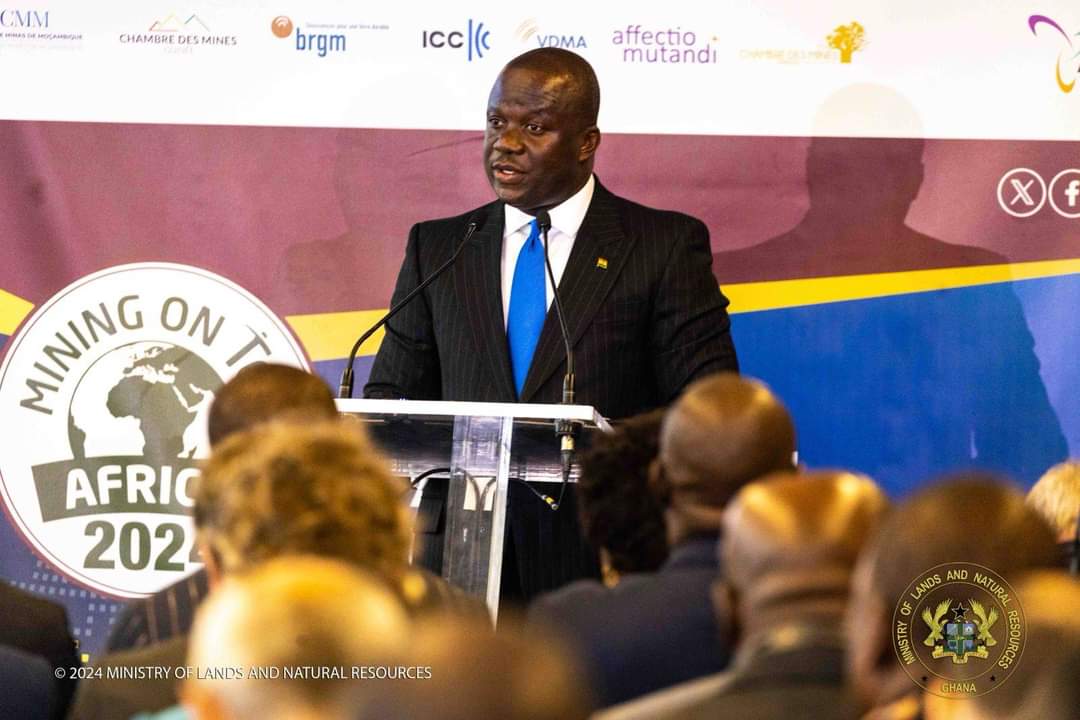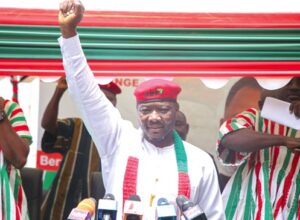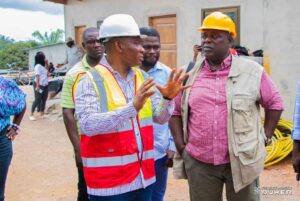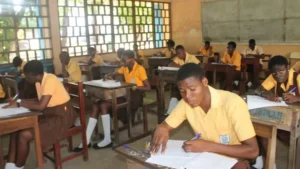ROBUST PARTNERSHIP BETWEEN AFRICA AND EUROPE IN THE MINING SECTOR KEY TO MEETING UN SDGS – LANDS MINISTER*
With African countries now adopting a more sustainable and eco-friendly ways of exploiting their mineral resources, Hon. Samuel A. Jinapor , MP, the Minister for Lands and Natural Resources has laid special emphasis on the need for mutually beneficial partnership between African countries and their European counterparts.
Delivering the keynote address at the 2024 Mining On Top Africa Conference in Paris, France on Wednesday, July 3, 2024, the Lands Minister expressed the urgent need for the jettisoning of the historical inequalities that has existed between mineral producing African countries and the developed countries, noting that a relationship that guarantees mutual benefit for both the West and Africa will be a step in furtherance of attainment of the United Nations Sustainable Development.
Hon. Samuel A. Jinapor explained that mineral producing countries are transitioning from the outmoded practice of ‘dug and ship’ with the new method anchored on value addition and local participation.
He emphasized the overarching importance of a partnership anchored on equitable distribution of benefits as that will help African countries to raise the resources to play a central role in the fight against climate change.
“The United Nations Sustainable Development Goals (SDGs) provides a framework to address climate change, resource depletion, and socioeconomic inequalities which threaten the well-being of our global community. Mutually beneficial mining partnerships between Europe and Africa is crucial to meeting these 2030 Goals. For our modern day lives, depend, largely, on mining and the appropriate use of variety of minerals”, he said.
“We must, therefore, consider the benefits generated through value addition and the ability to transform them into innovative products and associated service, to meet the needs of modern living. We must ensure that the framework for the exploitation of these minerals, favourably, generates benefits which are equitably distributed among all stakeholders, including countries and communities that host these minerals.
“Through these partnerships, we can tackle environmental degradation, social conflicts, and economic inequalities, while promoting efficiency and safety at the mine. Our Economic Partnership Agreements must, therefore, be designed not only to foster trade and investment, but promote value addition to the minerals we mine, create job opportunities for economic growth, and tackle poverty,” he said.
With Ghana being one of the African countries which has set sail in the implementation of environment-friendly policies in its mining sector, Hon. Jinapor took time to list some of the initiatives and detail their transformational impacts.
“This, obviously, calls for the implementation of mining-friendly policies that protect the interest of citizens and investors alike, while championing environmental sustainability. That is why Ghana, under the distinguished leadership of President Akufo-Addo, has adopted a Green Minerals Policy which aims at promoting value addition and beneficiation across the value chain of our green minerals, while contributing, substantially, to the green energy transition.
“Our aim is to ensure the retention of the full value chain of these critical minerals in the country, to the extent possible. Already, we have established through a Public Private Partnership, a four hundred kilogramme (400kg) capacity gold refinery, to refine the gold we produce.
“We are, also, promoting, through this Policy, local content and local participation across the value chain of our green minerals, from exploration, through mining to downstream production, to ensure that Ghanaians, who are by our national Constitution, the owners of these minerals, benefit optimally from them,” the Minister said.
The Minister also emphasized importance of fairness and inclusivity in the rewarding of African countries who have committed to facilitating the platform for the spurring of Green Mineral Resources in their countries.
He implored the countries to live up to the tenets of the Paris Agreement which enjoins the countries to commit resources to the fight against climate change.
“We must, therefore, use this opportunity to renew our commitment to tackling climate change, through measures such as the green energy transition, which mining plays a central role in its implementation.
“This transition, must, however, be fair, just, inclusive, and carry everyone along. It must not be pursued in a manner that only benefits the consumers of clean energy – investors and their home countries. But it must be done in a way that benefits the ultimate producers of the minerals required for the transition, who have consistently suffered the historical injustice commonly referred to as “resource curse.” The need for balance, and, indeed, equity is critical for susta






